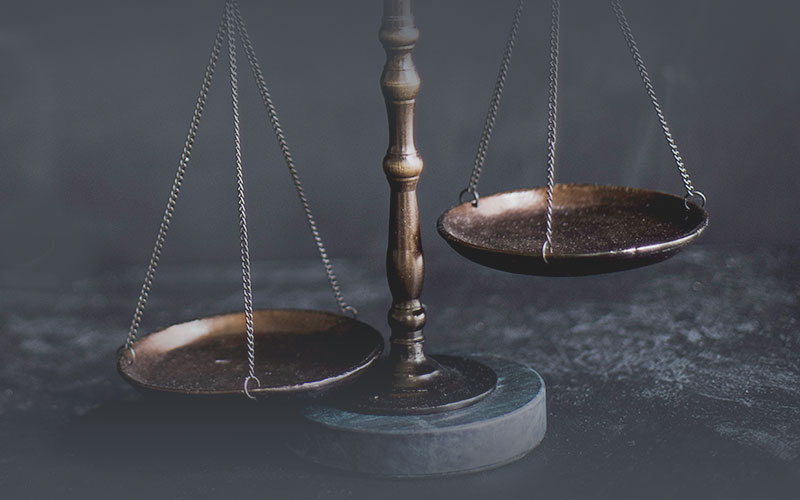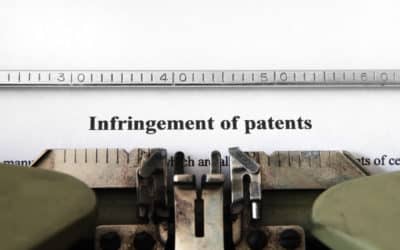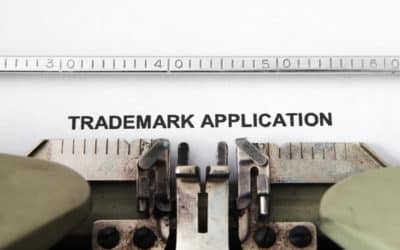Verna Law, P.C. is a premier, boutique law firm with a unique focus on Intellectual Property legal services: Trademarks, Patents, Copyrights, Advertising, and Media Law. Anthony M. Verna III, Managing Partner of Verna Law, P.C., has served Westchester County since 2015. Verna Law, P.C. has the best trademark attorneys you can hire.
Your Business and Brand are Our Priority
Trademark Law is a type of intellectual property protection that is all about protecting the brands that any business creates. These brands can be the business name, a product name, product lines, advertising slogans, taglines, colors, packaging, and even sounds. All of the following qualifies for trademark protection.
If your business is not protecting any of these aspects of its business, then your business is leaving value not counted for and not calculated. This protection can range from trademark clearance searches to filing trademark applications to finally receiving a federal trademark registration from the U.S. Patent and Trademark Office.
Let the team at Verna Law, an intellectual property law firm, help you protect your trademarks from applications to licenses to litigation.
It’s easy to work with us. We’re in Rye, New York – just five miles from White Plains. We represent startups, small businesses, corporations, and international clients.
Trademark Law Firm in Westchester County
Trademark Applications
We offer cost-effective trademark applications with a comprehensive search to give you the proper advice through the trademark registration process. After doing a comprehensive trademark search, the team at Verna Law, P.C. can make your trademark application at the United States Patent and Trademark Office until it registers. A trademark owner can save time, expense, and effort by adopting an inherently distinctive mark and ensuring it is registered on the Principal Register with the United States Patent and Trademark Office. Trademark registration is essential for acquiring strong legal rights, being able to efficiently enforce one’s trademark rights, and deterring others from infringing on your legal rights. If a trademark owner decides not to register its mark, and wants to enforce its rights, this becomes challenging. This challenge will also be encountered if a trademark is only registered on the Supplemental Register of the Trademark Office and not the Principal Register. The reasons why a trademark owner can benefit from registration are due to the presumptions that attach under the Lanham Act, specifically Sections 7(b) and 7(c) (15 U.S.C. §1057). Verna Law, P.C. also has experience at the Trademark Trial and Appeal Board should the need to oppose or cancel any other trademarks. Learn More.
Trademark Litigation
Our team has over 60 years of combined experience in litigation. Anthony Verna, Managing Partner of Verna Law, P.C., is admitted to the Southern District of New York (Federal Courthouse in Manhattan) and Eastern District of New York (Federal Courthouse in Brooklyn), to represent you in federal trademark matters. Should there be a likelihood of confusion with another trademark, Verna Law, P.C. can handle being a plaintiff or a defendant in any trademark law matter in all federal courts in New York. Our cases have ranged helping business owners protect their own intellectual property rights to defending business owners from overly aggressive plaintiffs. A company’s trademarks are its brand identity and should others be using that identity, a valuable asset can be harmed. We also litigate trademark oppositions and cancellations at the Trademark Trial and Appeal Board against parties with a similar trademark from another trademark owner. Learn More
Trademark FAQ
Do you have questions about trademarks? What is a common law trademark? What extra rights does a registered trademark have? What is a service mark registration? What are the legal requirements to register a trademark? How do you respond to an Office Action? What are descriptive marks? What does it mean to have a distinct mark? What does it mean to have a fanciful trademark? How does interstate commerce affect trademark? When is a trademark renewal required? Learn More
Our Team
If you’re seeking expert legal guidance for your trademark-related concerns, look no further than Verna Law, P.C. We are dedicated to providing exceptional service and protecting your intellectual property rights. Reach out to our team today to schedule a consultation and take the first step towards safeguarding your trademarks. Contact our Trademark Law Firm in Westchester County.

Anthony M. Verna III
Managing Partner
Anthony is a member of both the New York and New Jersey Bars, as well as the U.S. District Court for the Southern District of New York and the U.S. District Court for the Eastern District of New York. He is a sought-after business speaker and has built Verna Law, P.C. to have a strong focus on Patent, Trademark, Copyright, Domain Names, Entertainment, and Advertising law, providing Intellectual Property services for modern businesses who want to promote and protect themselves and stand out in this market. Anthony is an intellectual property attorney who has worked on patent protection, trademark applications, design patents, trade secrets, unfair competition, patent law litigation, trademark law litigation, and copyright law litigation. Anthony has over 20 years of experience and has worked on various types of patents for various industries, including toys, medical devices, consumer products, and pharmaceutics, and international patents. Outside of law, Anthony likes drinking a Montepulciano d’Abruzzo (his family is from the region), his first concert was Tori Amos, and he plays tuba and guitar. Learn more about Anthony here.

Wil Jacques
Patent Agent
With over 25 years of extensive experience in engineering, manufacturing, sales, strategic marketing, and technology licensing for government, industrial, and private sector organizations and clients, Wil is a patent valuation and licensing expert. He is registered at the United States Patent and Trademark Office as a patent agent and works on patent applications throughout the patent process including office actions. Wil is the lead in protecting patent rights at Verna Law, P.C., including drafting a provisional patent applications, utility patents, patent claims, and patent application preparation. His substantial expertise is on assisting early-stage companies in attracting capital investments and out-licensing opportunities with larger, more established market players including government, venture capital firms, and medium to large-size corporations. Wil is an avid golfer. Learn more.

Judy Endejan
Litigation Consultant
Judy focuses on telecommunications, media, and intellectual property issues. With a unique blend of private practice and in-house experience, Judy spent ten years with GTE Corporation (now Verizon), acquiring substantial experience in public utility regulation and administrative law. She has also served as General Counsel for Fisher Communications, Inc., a major Northwest broadcast corporation. Judy is licensed in Washington and California and has over 40 years of legal experience. Judy has represented clients in entertainment industries for trademark infringement and copyright infringement matters. Outside of law, Judy likes a good champagne, her first concert was The Beatles, she has two corgis named Sadie and Cosmo, and her first job after college was as a reporter at the Milwaukee Journal.
Learn more about Judy here.
New York State Trademark Matters
At Verna Law, we prefer our clients to register their trademarks federally. Why? Many companies, especially those operating solely on a local level, might not see the need for federal trademark registration. These businesses often rely on state trademark laws and common law protections. However, in today’s digital age, even the smallest local businesses are often pushed into the national and international marketplace through their online presence. On the Internet, common law protections may not be enough to safeguard a brand from predatory competitors and cybersquatters who might try to extort payment in exchange for releasing a domain name that a local company neglected to register.
One of the most compelling reasons to file for federal trademark registration is to secure maximum protection for a domain name. By federally registering a mark, the owner receives preferential treatment in any domain name disputes brought before the Internet Corporation for Assigned Names and Numbers (ICANN). This registration not only protects your brand from misuse by others but also helps ensure your ability to use your brand name as a domain over those who might exploit it unscrupulously.
Ultimately, the most crucial reason to register a mark with the United States Patent and Trademark Office (USPTO) is to inform both consumers and potential competitors that your mark is federally protected. Once registered, you can use the registered trademark symbol (®) to indicate that your mark is officially recognized. This warns potential competitors that if they infringe on your mark, you have the right to file a federal trademark infringement action and seek remedies for the infringement. These remedies can include the infringer’s profits, other damages, and in some cases, even tripled damages and attorney fees. Such enhanced remedies are typically not available for unregistered, common law trademarks.
Considering the relatively low cost of filing for registration compared to the extensive benefits it provides, we usually recommend federal registration for the trademarks and service marks of most businesses, enterprises, and even individuals.
Here are some cases involving New York State trademarks only.
Case Summary: Gasoline Heaven at Commack, Inc. v. Nesconset Gas Heaven, Inc.
Court: Supreme Court, Suffolk County, New York
Date: May 16, 2002
Citation: 191 Misc.2d 646, 743 N.Y.S.2d 825, 2002 N.Y. Slip Op. 22569
Background: The case involves a trademark dispute between Gasoline Heaven at Commack, Inc. (Plaintiff) and Nesconset Gas Heaven, Inc. (Defendant). The plaintiff alleged that the defendant’s use of the name “Gas Heaven” created confusion among customers and constituted trademark infringement.
Facts:
- Gasoline Heaven at Commack, Inc. operates a chain of gas stations under the name “Gasoline Heaven.”
- Nesconset Gas Heaven, Inc. opened a gas station using the name “Gas Heaven.”
- The plaintiff claimed that the defendant’s use of “Gas Heaven” was likely to confuse customers and dilute their brand’s distinctiveness.
- The plaintiff sought a preliminary injunction to prevent the defendant from using the name “Gas Heaven.”
Procedural History: The plaintiff filed a motion for a preliminary injunction in the Supreme Court, Suffolk County, New York.
Issue: The primary issue before the court was whether the plaintiff was entitled to a preliminary injunction to stop the defendant from using the name “Gas Heaven,” based on the likelihood of consumer confusion and trademark dilution.
Holding: The court granted the plaintiff’s motion for a preliminary injunction, preventing Nesconset Gas Heaven, Inc. from using the name “Gas Heaven.”
Rationale:
- The court found that the plaintiff had established a likelihood of success on the merits of their trademark infringement claim.
- There was sufficient evidence to suggest that consumers were likely to be confused by the similarity between “Gasoline Heaven” and “Gas Heaven.”
- The court noted that the plaintiff’s brand had acquired distinctiveness and goodwill, which could be diluted by the defendant’s use of a similar name.
- The balance of equities tipped in favor of the plaintiff, as the potential harm to the plaintiff’s brand outweighed any inconvenience the defendant might face by changing their name.
Conclusion: The court’s decision to grant a preliminary injunction underscored the importance of protecting established trademarks from infringement and dilution. By preventing Nesconset Gas Heaven, Inc. from using the name “Gas Heaven,” the court aimed to preserve the distinctiveness and consumer recognition of Gasoline Heaven at Commack, Inc.’s brand. This case highlights the legal recourse available to businesses facing trademark infringement and the courts’ role in upholding trademark protections.
Case Summary: Fireman’s Ass’n of State of New York v. French American School of New York
Court: Supreme Court, Appellate Division, Third Department, New York
Date: June 7, 2007
Citation: 41 A.D.3d 925, 839 N.Y.S.2d 238, 2007 N.Y. Slip Op. 04745
Judge: CARDONA, P.J.
Background
The Fireman’s Association of the State of New York (Petitioner) is a not-for-profit organization established in the 1870s, representing 43,000 volunteer firefighters. It disseminates information about firefighting and fire safety and operates a home for retired firefighters, a firefighting museum, and sells related merchandise. Petitioner adopted the acronym “FASNY” in 1889 and uses it widely on various platforms.
The French American School of New York (Respondent) is a private, not-for-profit educational organization founded in 1980, serving predominantly French expatriate children at three Westchester County locations. The Respondent has used the acronym “FASNY” informally for 20 years and formally since 1997.
In 2005, the Petitioner discovered that the Respondent was using the “FASNY” acronym and demanded that the Respondent cease its use, claiming trademark infringement. The Respondent did not comply, leading the Petitioner to file a lawsuit seeking injunctive relief and alleging trademark infringement, deceptive trade practices, and dilution of its mark.
Trial Court’s Decision
The Supreme Court (McNamara, J.):
- Denied relief under General Business Law § 133 and the trademark infringement claims, citing no public deception or likelihood of confusion.
- Granted a preliminary injunction under General Business Law § 360-l, finding that the Respondent’s use diluted the distinctive quality of the Petitioner’s mark.
Issues on Appeal
The Respondent appealed, arguing:
- The Petitioner did not meet the requirements for a preliminary injunction under General Business Law § 360-l.
- The entire petition should be dismissed.
Appellate Division Decision
The Appellate Division modified the lower court’s decision:
- General Business Law § 133 and Trademark Infringement Claims: Affirmed dismissal. The Petitioner did not demonstrate intent to deceive or likelihood of public confusion.
- General Business Law § 360-l Claim: Vacated the preliminary injunction. The Petitioner failed to show irreparable injury, given the coexistence of both parties’ use of the “FASNY” mark for 20 years without documented harm. The court also considered the adverse impact on the Respondent if forced to abandon the mark.
The Appellate Division held that the Petitioner still had a valid cause of action under General Business Law § 360-l, recognizing the low threshold to survive a motion to dismiss. The Petitioner had alleged facts suggesting that the Respondent’s use could dilute the distinctive quality of its mark.
Conclusion
The order was modified to dismiss the General Business Law § 133 and trademark infringement claims and to vacate the preliminary injunction. The case was remanded for further proceedings on the General Business Law § 360-l claim.
Judges
PETERS, SPAIN, CARPINELLO, and ROSE, JJ., concurred.
Order: Modified and affirmed as modified, with costs to the Respondent.
Contact Us for a Free Consultation
Recent News
What Are the Remedies for Patent Infringement?
What Are the Remedies for Patent Infringement? Patent Infringement Remedies: Protecting Intellectual Property Rights in the Modern EraIn the complex world of intellectual property law, patent infringement remains a significant concern for inventors, businesses, and...
What is a Divisional Patent Application?
Understanding Divisional Patent Applications: A Comprehensive Guide In the complex world of intellectual property, divisional patent applications play a crucial role in protecting multiple inventions disclosed in a single patent application. This comprehensive guide...
Trademark Trial and Appeal Board
Trademark Trial and Appeal Board In the world of intellectual property, trademark protection is vital for safeguarding the distinctive signs, logos, and names that distinguish goods or services. Within this landscape, the Trademark Trial and Appeal Board (TTAB) plays...







